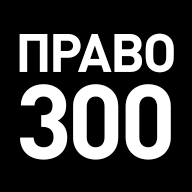Antimonopoly regulation during the COVID-19 pandemic
Antimonopoly regulation during the COVID-19 pandemic
The spread of coronavirus infection has somehow affected all areas of government regulation. Certain changes also appeared in the work of the Federal Antimonopoly Service of Russia: FAS and its regional Offices have to respond immediately to the changes related to COVID-19, especially on those socially important markets that are essential for the population. Learn more about novelties and amendments in the sphere of antimonopoly regulation in our analytical material.
1. FAS has postponed the inspections until the end of 2020.
In accordance with Order No. 397/20 of the FAS Russia dated April 14, 2020, all inspections were excluded from the Plan of inspections of legal entities and individual entrepreneurs of FAS Russia for 2020.
It should be noted that the only exception will be unscheduled inspections to verify compliance with the antimonopoly law related to protection of life and health of the population, and the laws on procurement.
2. Commissions on investigating antimonopoly and administrative cases will work remotely.
Changes were made to the work of the commissions on investigating antimonopoly and administrative cases. According to the service, if possible, the work of the commissions will be carried out remotely using video communication programs or temporarily postponed taking into account all the necessary deadlines. All interested parties will be notified in advance of the possibility of remote participation in planned events.
3. FAS has tightened price control over socially important food products and medical face masks.
According to information posted on the official service website, FAS Russia currently carries out constant monitoring of prices for medical masks: regional FAS Offices must report to FAS Central Office daily about changes in the prices for medical face masks in the subjects of the Russian Federation, and if information about increasing prices for medical face masks or their shortage is obtained, FAS regional Offices must carry out inspections.
From 23 March 2020 FAS regional bodies will strengthen its work on exposing an unreasonable growth of prices for socially-important foodstuffs and goods. Special attention shall be paid to bread and bakery goods, cereals, meat, fish, eggs, butter and some fruits and vegetables.
FAS regional Offices will monitor prices for the above products on a daily basis, including week-ends, by day-to-day registering prices in retail chains. Hot lines are still opened on all web-sites of FAS regional Offices to promptly obtain information about the facts of increased prices for foodstuffs.
Information about the received statements and the measures undertaken by FAS regional Offices2 – inspections, meetings and conferences – will be submitted daily to FAS Central Office to be forwarded to the Government of the Russian Federation.
FAS considers all statements about growing prices within the statutory period. If anticompetitive conduct of market participants is exposed, FAS applies antimonopoly remedies.
4. FAS Russia has clarified the procurement procedures.
FAS Russia drew the attention of procurement participants to the fact that customers still have the right to make procurements, and electronic platforms are required to ensure their conduct in normal operating mode.
At the same time, on April 1, 2020, Federal Law No. 98-ФЗ “On Amending Certain Legislative Acts of the Russian Federation on the Prevention and Response of Emergencies” entered into force. Among the other changes the amendment to Clause 9 of Part 1 of Article 93 of the Federal Law of April 5, 2013 No. 44-FZ “On the Contract System in the Sphere of Procurement of Goods, Work, and Services to Ensure State and Municipal Needs” was made.
As the FAS Russia points out, the current version of the article gives customers the right to make procurement designed to prevent and liquidate the consequences of spreading COVID-19 from a single supplier subject to cause-and-effect link between the purpose and the subject matter of such procurement.
